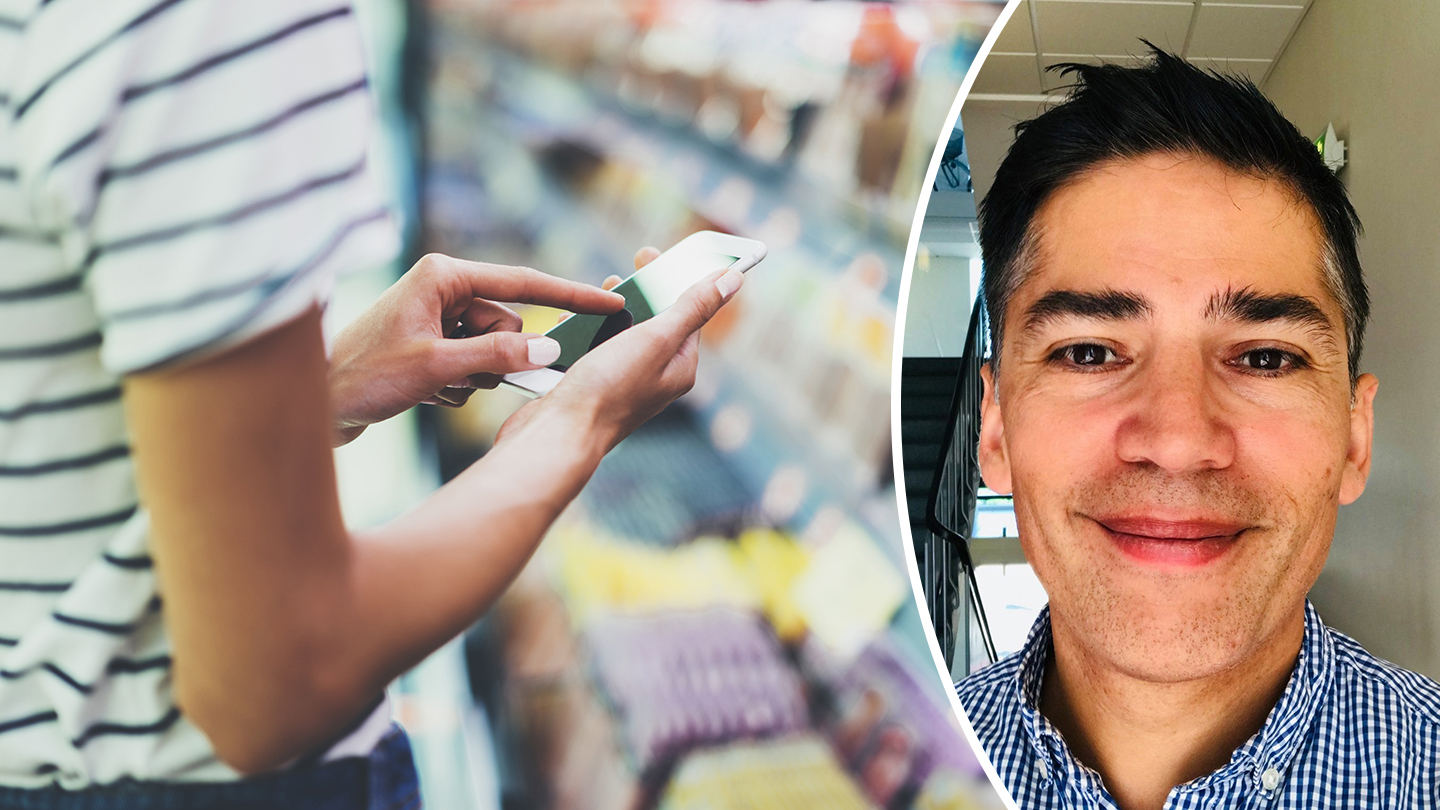Professor wants to understand the impact of digitalisation
2021-02-09

“A better understanding of how consumption is digitalised and what it can lead to. Digitalisation is not automatically good or bad. Rather it’s a question that you have to look at from case to case. This is how I want to approach digitalisation and not as someone who from the outset is negative or positive towards digitalisation."
Christian Fuentes, Professor of Business Administration at the University of Borås
That Christian Fuentes would go on to become a professor and work in the research world was not the plan when he started studying at the School of Business, Economics and Law at the University of Gothenburg.
“My last year as a student, I was asked to be part of a research project that was about e-cinema. I got to try out doing research for a few months and I thought it was difficult but very interesting.”
After that project, Christian was asked to take part in another research project, eventually applying for a doctoral position, even though the original plan had actually been to become a marketer.
“When I applied for a doctoral position at Lund University, it was at a department called Service Management, where retail was one of several specialisations. To fit into that specialisation, I chose to focus on retailing, both in my application and then in my doctoral thesis.”
In 2011, Christian defended his doctoral thesis "Green retailing - A socio-material analysis" on sustainable retail. Since then, he has combined his interests in sustainability with the digitalisation of consumption.
The cross-section between economy and society
The digitalisation of retail has been ongoing several years and is something that is constantly changing. There is great potential when it comes to digitalisation as people can be connected in order to promote sustainable consumption and make the right decisions. But there can also be problems.
“I am interested in seeing how digitalisation changes consumption; that is, how it changes consumers' patterns and how they think and what it can mean. It is interesting for retailers who want to understand their customers but it is also important from a societal perspective. For example, digitalisation can lead to the exclusion of certain groups, to its becoming a tool for exploiting consumers, or in some cases to making us less social. So there are both positive and negative aspects to digitalisation. It is important to try to understand these processes and when they lead to one thing or another.”
Several projects on the theme
Digital platforms, apps, e-commerce, and food consumption are the areas of focus in Christian Fuentes’s current research projects. The projects relate in different ways to digitalisation and the reorganisation of food markets.
The project "Alternative food markets: promoting new ways of producing and consuming food" examines the emergence of new, more sustainable food markets, such as the market for vegetarian alternatives. The EU project PLATEFORMS examines how digitalisation has changed how we order and consume food. And the latest project "Digital platforms and new food practices: food consumption in times of crisis" studies how the pandemic crisis is changing consumers' use of digital food platforms.
Previous research shows that eating habits are difficult to change under normal circumstances, but that an event or a crisis tends to strengthen trends that are already underway.
“We had already started shopping for more food online before the pandemic, but this crisis has meant that it began to grow much more and faster. I think some of these practices will remain in place even after the pandemic. Maybe not to the same extent; some things may get more toned down and go back to how it was before. But we have at least become aware that there are other ways to purchase food,” said Christian Fuentes.
A strong interdisciplinary environment attracted
Since mid-August, Christian Fuentes has been employed as a professor at the University of Borås.
“I chose the University of Borås partly for its focus and strong environment when it comes to digital retail, with a combination of social science research and informatics. A combination I believe will be absolutely necessary in the future – in order to understand digitalisation from several perspectives. And partly for personal reasons, as I already knew many of my colleagues here from when I worked at the Centre for Consumption Research at the University of Gothenburg.”
As part of strengthening the university's environment in digital retail, a new research group has been started in the theme of digital consumption. This group will be led by Christian Fuentes.
“In this interdisciplinary research group, we will examine the ongoing digitalisation of consumption. How digital technology shapes our consumption, and what impact it has on retail, consumers and society at large,” said Christian Fuentes.
Christian Fuentes
Likes to do in his free time: Don’t have a lot of free time
Hidden talent: I have no talents, neither hidden nor open
Film tips: The Netflix documentary The Social Dilemma
Most used app in my mobile: Facebook and email
Prefers to eat: Vegetarian
Reads: Science fiction
Book tip: The book series Wool by the author Hugh Howey. Dystopian science fiction.
Read more
More about the project Alternative food markets: To promote new ways of producing and consuming food
More about the project Sustainable food platforms: To enable sustainable food practices through sociotechnical innovations (PLATEFORMS).
Annie Klasén, translation by Eva Medin
Private

